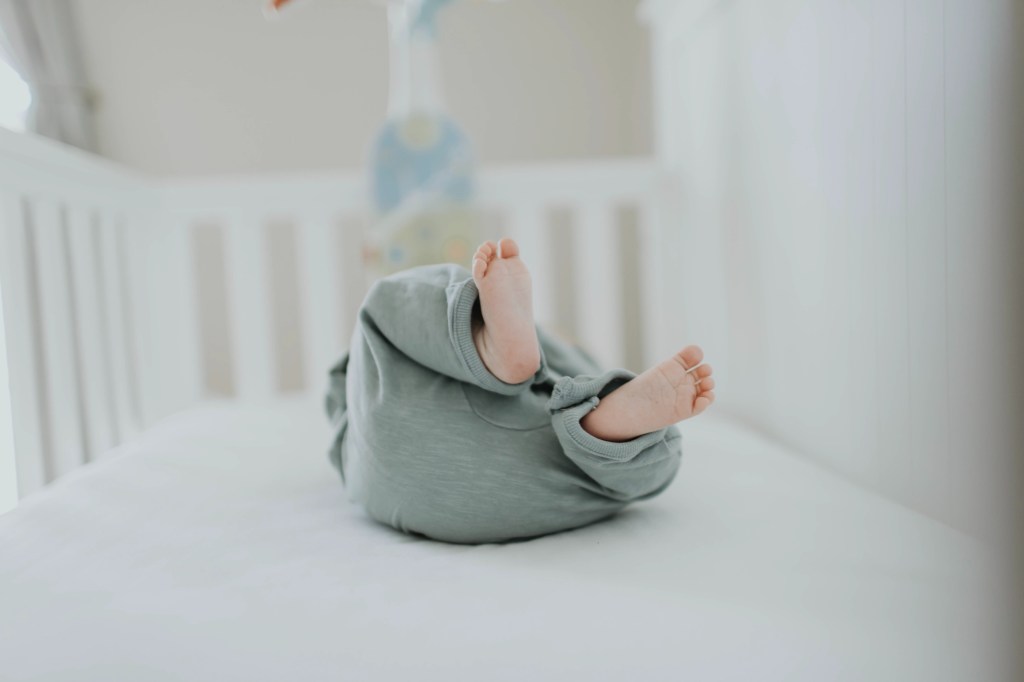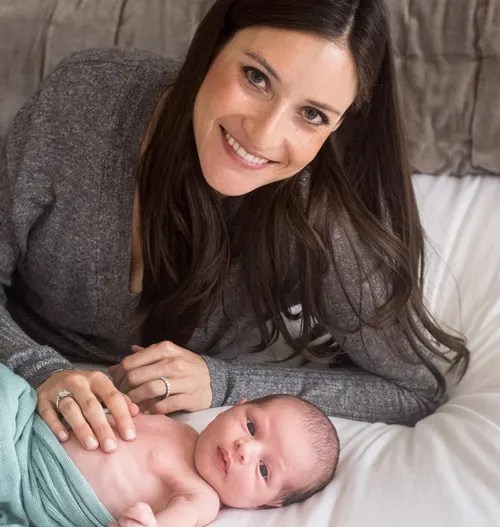Infant Sleep Tips

1. Optimize the Sleep Environment
As your baby grows past 8 weeks, their awareness of the environment increases. Ensuring their nursery is dark (like a cave) helps release melatonin, the sleep hormone. Maintain a cool room temperature (68-72 degrees) and consider using a white noise machine. Alternatively, a fan or humidifier can create a similar soothing effect.

2. Establish a Consistent Bedtime Routine
Babies thrive on routines. Start implementing a simple nap time and bedtime routine from around 6 weeks old. This routine can include feeding, diaper change, swaddling, pacifier, and two soothing songs before placing your baby in their crib or bassinet. Predictability helps your newborn wind down and transition into a deep sleep. To avoid dependency on feeding for sleep, try to feed your baby at the beginning of the bedtime routine.

3. Follow an Age-Appropriate Sleep Schedule
Often, sleep issues arise when the sleep schedule isn’t aligned with your baby’s age. Depending on their age, your baby requires a specific number of naps and the right balance of day and night sleep. Missing optimal sleep windows or insufficient overall sleep can lead to problems. Typically, babies take three naps between 4-8 months, two naps between 8-15 months, and one nap between 15 months and three years. Remember, quality naps during the day contribute to a better overall sleep routine.

4. Encourage Independent Sleep Habits
If you find yourself rocking, feeding, or holding your baby to sleep, you may experience frequent wake-ups during the night. When babies wake up, they often need the same conditions recreated to fall back asleep. By gently teaching your baby to fall asleep without assistance, in their crib, they can learn to self-soothe and sleep for longer stretches. Various methods, from direct to gradual approaches, can help establish independent sleep habits.

5. Maintain a Flexible Bedtime
While some parents believe in a fixed bedtime, it’s important to be flexible. Adjusting bedtime based on your baby’s daytime naps can greatly influence sleep quality. If naps were poor, consider moving bedtime earlier, even as early as 5:30 p.m. On days with good naps, bedtime can be closer to 7:30 p.m. Understanding age-appropriate wake windows is key to effective sleep training.












